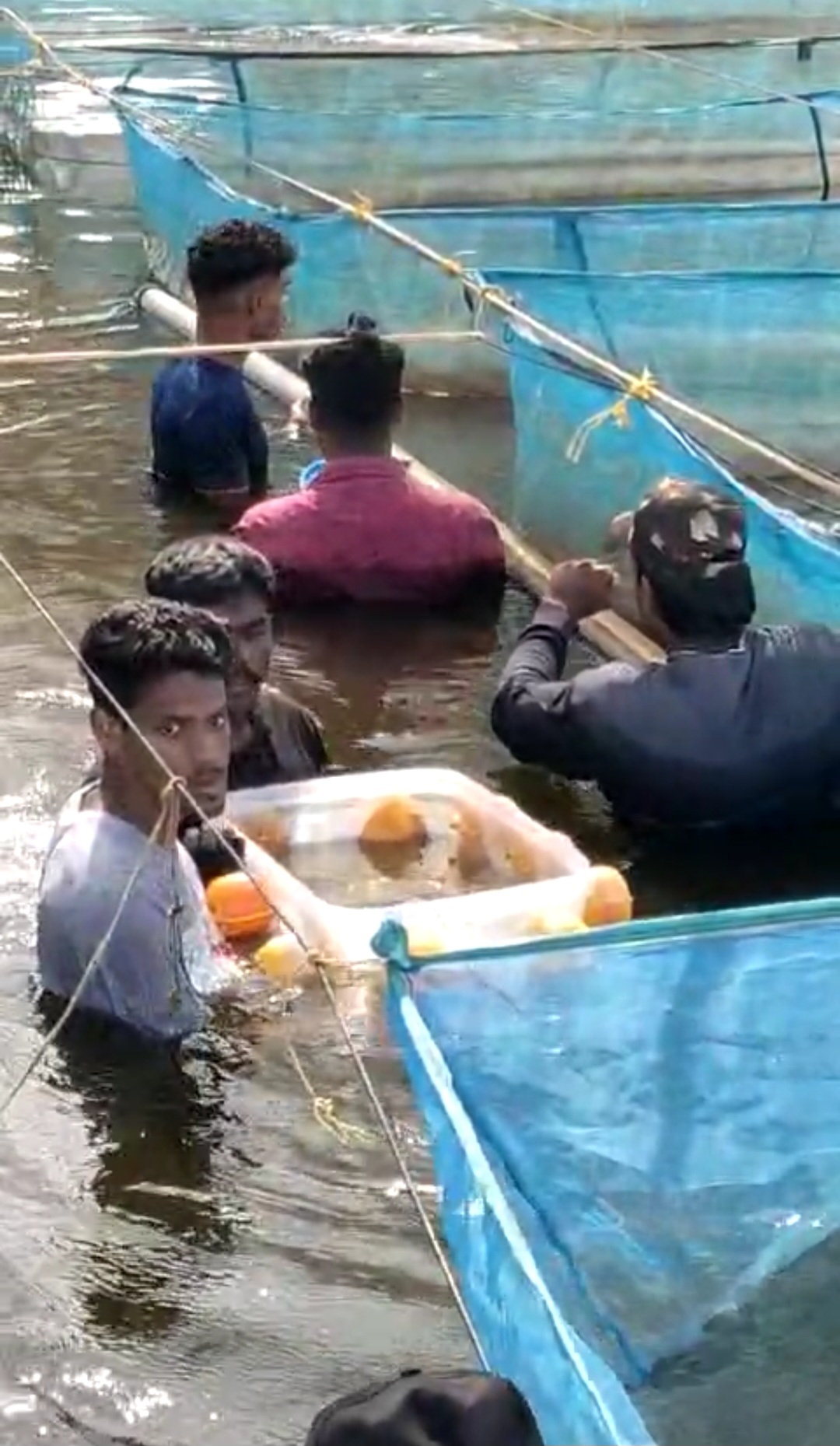
From January 29th to 31st, 2024, 16 students from the IV semester Aquaculture program at M E S Asmabi College participated in a three-day internship at the Multispecies Aquaculture Complex (MAC) of the Marine Products Export Development Authority (MPEDA) in Vallarpadom, Kochi. This internship was a crucial part of their academic curriculum, providing practical experience and exposure to advanced aquaculture techniques. The students were awarded certificates upon the successful completion of the internship. 2. Internship Objectives The primary objectives of the internship were: To gain practical knowledge and experience in cage farming and seed production. To understand the aquaculture practices for species such as GIFT Tilapia, Seabass, and Pearlspot. To integrate theoretical knowledge with practical skills through hands-on training and demonstrations. 3. Overview of Activities 3.1 Cage Farming The students were introduced to cage farming techniques, an essential method for sustainable aquaculture. Key learning points included: Construction and Maintenance of Cages: Students learned about the materials used, design principles, and regular maintenance practices to ensure the longevity and productivity of the cages. Stocking Density and Feeding Practices: Training sessions covered optimal stocking densities, feeding regimes, and types of feed used to promote healthy growth and minimize environmental impact. Monitoring and Health Management: The importance of regular monitoring of water quality parameters, disease prevention, and health management practices was emphasized. 3.2 Seed Production Seed production is a critical phase in the aquaculture lifecycle, and the students received comprehensive training in this area for various species: GIFT Tilapia: Techniques for broodstock selection, breeding, larval rearing, and nursery management were demonstrated. Students participated in the entire process from spawning to the rearing of fry. Seabass: The focus was on hatchery operations, larval feeding protocols, and the management of juvenile fish. Students learned about the specific environmental conditions required for optimal growth. Pearlspot: Students were taught the nuances of seed production for this indigenous species, including broodstock management, egg collection, and larval care. 4. Educational Components The internship was structured to provide a balanced mix of theoretical knowledge and practical skills: Theory Classes: Lectures and presentations were conducted by experts from MAC, covering various aspects of aquaculture science and technology. Topics included the biology and ecology of the species, advanced aquaculture techniques, and sustainable practices. Demonstrations: Live demonstrations of cage construction, broodstock handling, spawning techniques, and feeding practices allowed students to observe and understand the practical application of theoretical concepts. Hands-On Training: Students actively participated in daily operations, gaining first-hand experience in the various stages of aquaculture production. This hands-on approach reinforced their learning and enhanced their practical skills.

